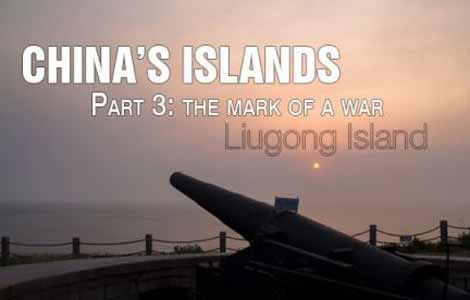Iran to improve transparency, but not to give up nuclear right
Updated: 2013-09-13 02:59
(Xinhua)
|
|||||||||||
VIENNA -- The new Iranian envoy to the International Atomic Energy Agency (IAEA) on Thursday said Tehran was ready to remove ambiguity on its disputed nuclear activities, but stressed Iran would never give up its established nuclear right under the non-proliferation treaty (NPT).
"Iran is ready to faithfully engage and remove any ambiguity on its nuclear activities," said Reza Najafi, a disarmament expert, the new Iranian ambassador to the UN nuclear watchdog, said in his first speech to the agency's closed-door board meeting.
He said Tehran was ready to cooperate with the agency constructively on the nuclear issue.
Fresh rounds of talks between Iran and the IAEA are scheduled for September 27 in Vienna. Ten rounds of previous talks have failed to make substantial progress in the past two years.
Najafi reiterated Iran would never compromise on its "inalienable right to develop nuclear program."
"If other sides want a proper response, they should speak to Iran not with a language of threat or sanctions but with a language of respect," he stressed.
Iranian President Hassan Rouhani appointed Najafi to replace Ali Asghar Soltanieh.
Najafi's appointment is seen by the West as a sign that Iran's moderate president seeks a diplomatic resolution to the decade-long nuclear dispute. Najafi also seems to be more moderate than his predecessor.
"He didn't refute the Direct-Gerenal directly in the meeting," one vienna-based diplomat said, but adding it's still unclear whether this is his personality or the reflect of Tehran's new foreign policy.
US envoy to the IAEA said they hope the Rouhani administration "will live up to its assurances of transparency and cooperation by taking concrete steps over the next several months that will allow for a positive report in November."
On September 27, Iran's new envoy is supposed to lead his team to talk with the UN nuclear watch dog over the structured approach document, which would conduct the investigation in Iran's nuclear activities specifically.
Najafi refuses to make comment over the talk, saying he would prejudge prospect of the meeting, but would cooperate constructively with the IAEA.
No deal was made in the previous 10 rounds of talks on this framework document, that Western diplomats presumed there might be even not any progress in details to settle this crucial framework, which means there were differences in principle between the Tehran and the agency.
To the West's concerns, meanwhile, the tough sanctions and pressure didn't seem to deter Iran's nuclear policy, Iran continues installing advanced IR-2m centrifuges and constructing the IR-40 heavy water research reactor, both of which are seen by the West as a defiant step to nuclear weapon.
In Najafi's statement to the board, regarding the structured approach document, he noted that Iran would never leave any ambiguity in the structured approach, as the unclear concepts of the document would hinder its implementation.
Vienna based diplomats told Xinhua since the inspection is beyond the safeguard agreement, both sides have different view of conducting the nuclear inspection in Iran if go into the details of the document.
However, the United States sees the structured approach as Iran's excuse to delay the nuclear inspection, "such an agreement is not required for Iran to cooperate with the IAEA on resolving outstanding issues, and require Iran to cease the delaying tactics, " US Ambassador Joseph E. Macmanus said in the board meeting.
The United States also warned of tough diplomatic action unless Iran's new government cooperate with the IAEA constructively, while the European Union also warned of possible "action" if Iran does not cooperate with probe attempts by November.
"With a new president in office, .... Iran today has an opportunity to change its path from intransigence to cooperation", "Should Iran continue its intransigence and obfuscation, we will work with fellow Board members at the November Board meeting to hold Iran appropriately accountable," the US envoy said in his statement to the board.
Western states have long accused Iran of developing nuclear weapons under the cover of Tehran's nuclear power plans -- an allegation Iran strongly denies and has repeatedly dismissed.
Related Stories
Xi welcomes talks on Iran nuclear issue 2013-09-13 02:07
Xi praises Iran's moves to resolve nuclear standoff 2013-09-12 20:37
China to make effort on Iran nuke talks: Xi 2013-09-12 19:00
Iran ready to allay West over nuclear program 2013-09-08 04:23
Today's Top News
China reveals air pollution battle plan
Wang tops Hurun wealthy list
Foreign Ministry dismisses Philippine accusations
Russia proposal likely to avert US airstrikes
EC: Financial recovery 'within sight'
Li stresses transformation of economy
Ties with Kyrgyzstan upgraded
Trending news across China
Hot Topics
Lunar probe , China growth forecasts, Emission rules get tougher, China seen through 'colored lens', International board,
Editor's Picks

|

|

|

|

|

|





